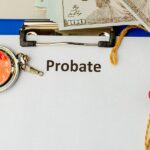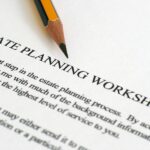Category Archives: Personal Representative

What are the Stages of Probate?
Probate is a court-supervised process occurring after your death. It takes place in the state where you were a resident at the time of your death and addresses your estate—all of your financial assets, real estate, personal belongings, debts and unpaid taxes. If you have an estate plan, your last will names an executor,… Read More »

Do You Know Your Job as Executor, Agent or Trustee?
It’s not uncommon for a named executor or trustee to have some anxiety when they discover that they were named in a family member’s estate planning documents. With the testator or grantor dead or incapacitated, the named individual is often desperate to learn what their responsibilities are. It may seem like they’re asked to… Read More »

The Importance of a Will
Even during a pandemic, few people want to spend time thinking about death. However, having an estate plan means having some of the most important documents you’ll ever create. Having a will is a gift that alleviates the burden placed on loved ones after we are gone, says this recent article “Why it’s important… Read More »

Estate Battles Over Personal Property Distribution
Creating and probating a last will and testament is rarely a simple task, but one of the most challenging aspects is the distribution of personal property, warns the article “Be clear about personal property distribution in your will” from The News-Enterprise. The nature of personal property—that it is relatively low in market value but… Read More »

How Much Power Does an Executor Have?
The Pauls Valley Daily Democrat’s recent article entitled “It doesn’t end with the will” explains that there’s constant confusion about wills. This misunderstanding involves the scope of power of those named in the will as the personal representative (or executor) of the decedent’s estate. Let’s try to straighten out some of these myths or… Read More »

What’s Involved in the Probate Process?
SWAAY’s recent article entitled “What is the Probate Process in Florida?” says that while every state has its own laws, the probate process can be fairly similar. Here are the basic steps in the probate process: The family consults with an experienced probate attorney. Those mentioned in the decedent’s will should meet with a… Read More »

Estate Planning for Asset Distribution
Without proper planning, your will determines who inherits your property—everything from your home, car, bank accounts and personal possessions. Your spouse may not necessarily be your heir—and that’s just one of many reasons to have an estate plan. An estate plan avoids a “default” distribution of your possessions, says the recent article “Asset distribution… Read More »

What Needs to Happen after a Spouse Dies?
Making funeral arrangements, paying medical bills and closing down accounts are just the start of the tasks that a surviving spouse must take charge of, advises the recent article “Checklist for Handling the Death of a Spouse” from U.S. News & World Report. It can be overwhelming, especially with the intense emotions that come… Read More »

What Is Involved with Serving as an Executor?
Serving as the executor of a relative’s estate may seem like an honor, but it can also be a lot of work, says The (Fostoria, OH) Review Times’ recent article entitled “An executor’s guide to settling a loved one’s estate.” As an executor of a will, you’re tasked with settling her affairs after she… Read More »

Do I Need More Than a Will?
If you die without a will (i.e., intestate), a court will determine who inherits your assets and who would care for any surviving children as a guardian. CNBC’s recent article entitled “A will doesn’t cover all your bases when it comes to end-of-life decisions. Here’s what else you need” explains that some assets pass… Read More »
